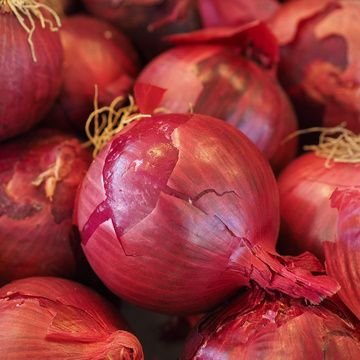With the spooky season upon us, there’s never been a better time to delve into the health benefits of our favourite orange squash; pumpkin. This week’s Nutrition News looks at a number of recently published papers and articles from the world of nutrition to keep you informed of the best ways of maintaining health.
Find out more here.
The health benefits of pumpkins
Pumpkins are not just for October; they have a rich history as a versatile nutritional powerhouse, with significant health benefits making them worthy of far more than a bit of seasonal decoration. Native to the Americas and cultivated by Indigenous communities long before European arrival, pumpkins are packed with vitamins, minerals, and antioxidants, making them a nutrient-dense food, offering substantial nutrition for relatively few calories.
The New York Times highlights in its article “Is Pumpkin Good for You?” that a mere cup of canned pumpkin delivers 137 calories while providing over 200% of the daily value for vitamin A, 36% for vitamin K, 25% for fibre, and 22% for vitamin E. It's also rich in vitamin B6, vitamin C, magnesium, riboflavin, iron, and potassium. Pumpkin's golden colour comes from plant pigments called carotenoids, which the body can convert into vitamin A. This vitamin is essential for eye health, skin health, pregnancy, and immune support, which is particularly vital during cold and flu season.
Pumpkin's beta-carotene, along with vitamins C and E, act as antioxidants, supporting the skin against UV rays and pollution. It's also rich in fibre, with seven grams per cup of canned pumpkin, which supports fullness, therefore aiding weight management, regulating blood sugar, and supporting gut health.
The potassium content in pumpkin contributes to potential blood pressure reduction, supported bone health, and lowered risks of stroke and kidney stones.
Then there are the pumpkin seeds – they're edible and rich in protein, fibre, healthy fats, iron, magnesium, and zinc.
You can enjoy the benefits of pumpkin conveniently with canned pumpkin, a nutritious alternative to homemade purée. Use it in porridge, yoghurt, or in savoury dishes such as chilli, soup, and pasta. It’s important to note that the large Halloween pumpkins are rarely very good for eating, although the seeds can still be used in a culinary sense; instead, look for smaller pumpkins from a farm shop or in the vegetable aisle.
Two probiotics identified for heart health benefits
Approximately 40% of adults globally struggle with high blood pressure, which is a heart health condition linked to cardiovascular diseases and other health risks. Recent research indicates that probiotics could have a protective effect against hypertension, and a new study, reported by Science Daily in the article “Two probiotics identified as promising hypertension treatments” unveiled two promising probiotic strains, Bifidobacterium lactis and Lactobacillus rhamnosus, that effectively normalised blood pressure in hypertensive subjects.
The study, a collaborative effort between computational biologist Jun Li from the City University of Hong Kong and microbiologist Zhihong Sun from Inner Mongolia Agricultural University, delves into the dynamics of probiotics on the gut microbiota and their role in regulating blood pressure. The researchers were motivated by the growing body of evidence supporting probiotics and probiotic fermented foods' antihypertensive effects, both in vitro and in vivo.
Rising global hypertension rates have been partly attributed to increased sugar consumption, which influences blood pressure through various mechanisms, such as insulin resistance and salt retention. Recent research has also explored the connection between sugar and the gut microbiome.
In this study, hypertensive subjects that had developed high blood pressure due to fructose consumption were given either of the two probiotic strains over 16 weeks. The results were encouraging, as these subjects exhibited significantly lower blood pressures compared to those on a high-fructose diet without probiotics. Furthermore, the probiotic group showed no significant difference in blood pressure compared to a control group that only consumed water, implying that probiotics can effectively maintain normal blood pressure.
The study's promising findings have set the stage for a large clinical trial. The potential implications of this research are significant, as it may lead to innovative approaches in preventive models, offering the possibility of regulating hypertension and reshaping cardiovascular health strategies.
Is ashwagandha good for health?
Stress affects countless individuals worldwide and its consequences on health are well-documented. While some stress is healthy, prolonged stress can be chronic and lead to a number of health issues. In the State of the Global Workplace 2023 Report, reported by Medical News Today in the article “How accurate are the claims about ashwagandha's benefits?” approximately 44% of workers acknowledge experiencing substantial stress, suggesting there’s never been a more important time for stress management. Stress has been linked to high blood pressure, cardiovascular issues, compromised immune function, metabolic disturbances, and disrupted sleep patterns.
Consequently, many people are exploring various stress-relief strategies, one of which is ashwagandha supplementation. Users touting the benefits of ashwagandha claim improved testosterone levels, enhanced libido, better cognitive support, and increased overall happiness and stress resilience.
Ashwagandha, scientifically known as Withania somnifera, is a small evergreen shrub indigenous to regions of India, Africa, and Southeast Asia. This herb's current popularity on social media primarily stems from its alleged stress-reduction properties.
Dr. David C. Leopold, a network medical director of Integrative Health & Medicine, explains that ashwagandha, classified as an adaptogen, may reduce stress by modulating the immune system and enhancing mental and physical resilience during stress. It can also indirectly aid conditions exacerbated by stress, such as fatigue and offer sleep support.
While several studies suggest that ashwagandha can have a positive impact on stress, it should not serve as a substitute for addressing underlying psychological or physiological concerns. Registered dietitian nutritionist Monique Richard emphasises the need to prioritise foundational health needs before considering functional foods and adaptogens.
It's essential to remember that ashwagandha is not suitable for everyone. It may have contraindications for individuals with autoimmune diseases, hyperthyroidism, hormone-sensitive prostate cancer, and during pregnancy, so always be sure to consult your healthcare practitioner before introducing anything new to your diet.
It’s also worth noting that Vitamin C and Niacin (B3) contributes to normal psychological function & normal functioning of the nervous system, B12 & folate contributes to normal psychological function, and Vitamin B6 contributes to normal functioning of the nervous system, all supporting stress management.
For individuals seeking alternate stress-relief strategies, various dietary and lifestyle modifications can make a significant difference. Incorporating whole, organic foods rich in healthy fats, fibre, and essential nutrients can positively impact mood and psychological health. Supporting the gut microbiome through a diverse diet and practicing mind-body techniques such as meditation, deep breathing, and yoga are powerful ways to alleviate stress. Creative activities, sufficient sleep, and disconnecting from electronics are additional methods to naturally manage stress. Furthermore, mental health counselling is a valuable resource for individuals dealing with chronic stress, anxiety, or depression, offering the opportunity to address these challenges proactively.
Share your thoughts
Agree with the findings in this week’s Nutrition News? Share your thoughts with us on Facebook and Twitter.
 Alison is Director and Founder of Metabolics who writes about Metabolics updates, events and natural healthcare. Her experience and passion for natural supplements and healthcare comes from her years of experience as a practising osteopath, having founded Metabolics in her search for high quality, natural products in her own work. Alison has been a qualified and practising Osteopath since 1981 and regularly gives seminars on a range of healthcare subjects to the wider practitioner community helping share her knowledge and experience.
Alison is Director and Founder of Metabolics who writes about Metabolics updates, events and natural healthcare. Her experience and passion for natural supplements and healthcare comes from her years of experience as a practising osteopath, having founded Metabolics in her search for high quality, natural products in her own work. Alison has been a qualified and practising Osteopath since 1981 and regularly gives seminars on a range of healthcare subjects to the wider practitioner community helping share her knowledge and experience.




